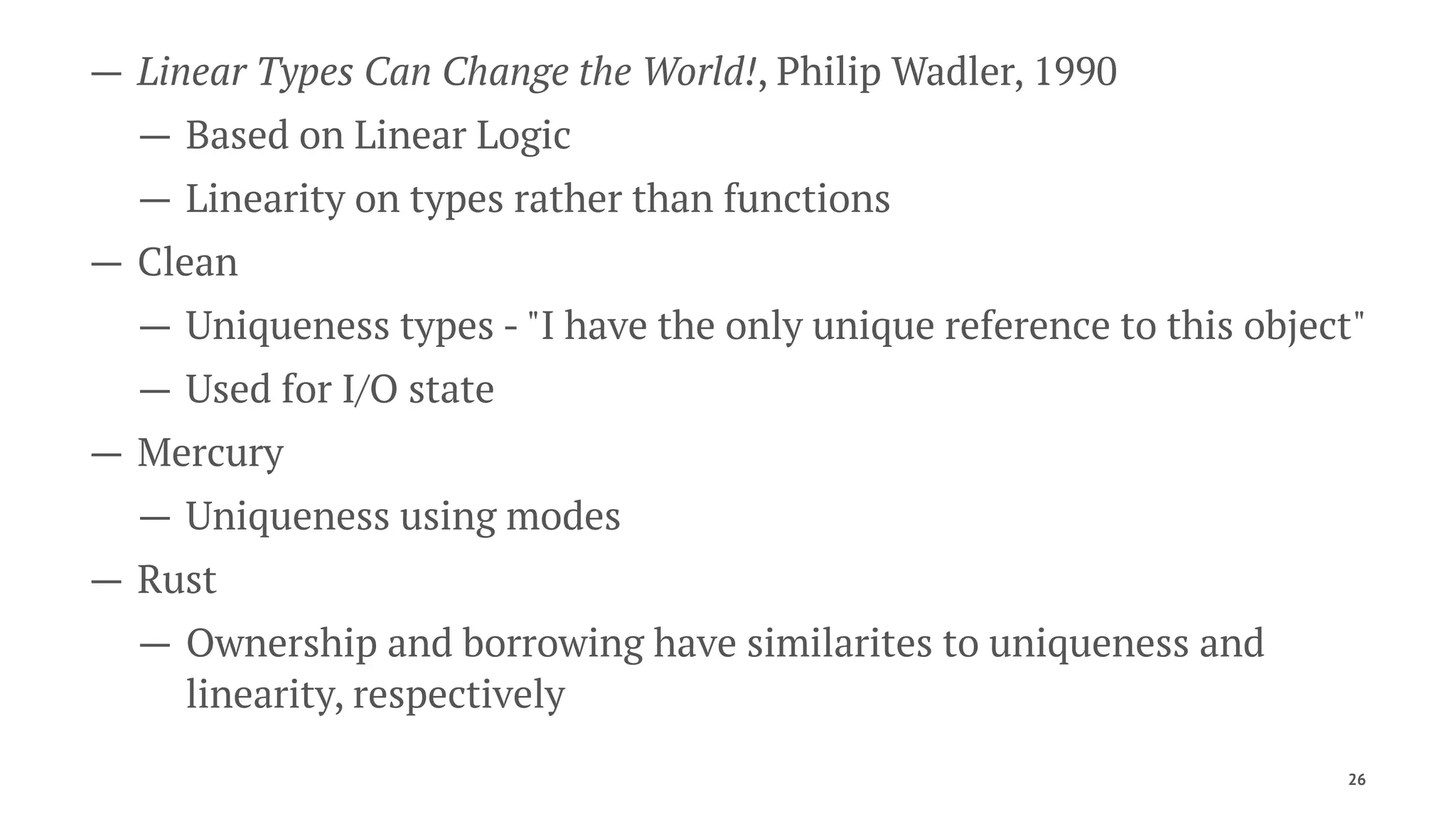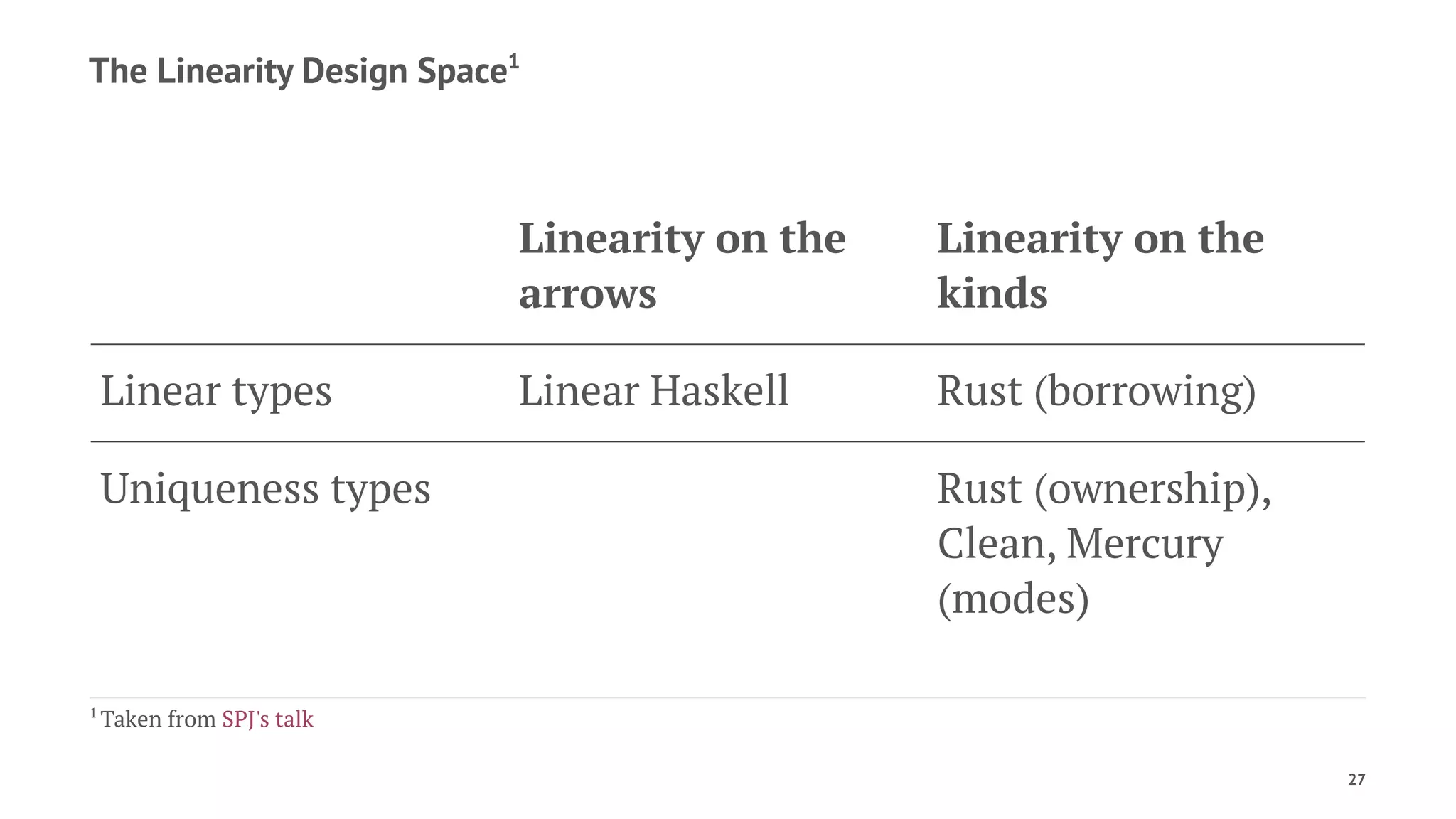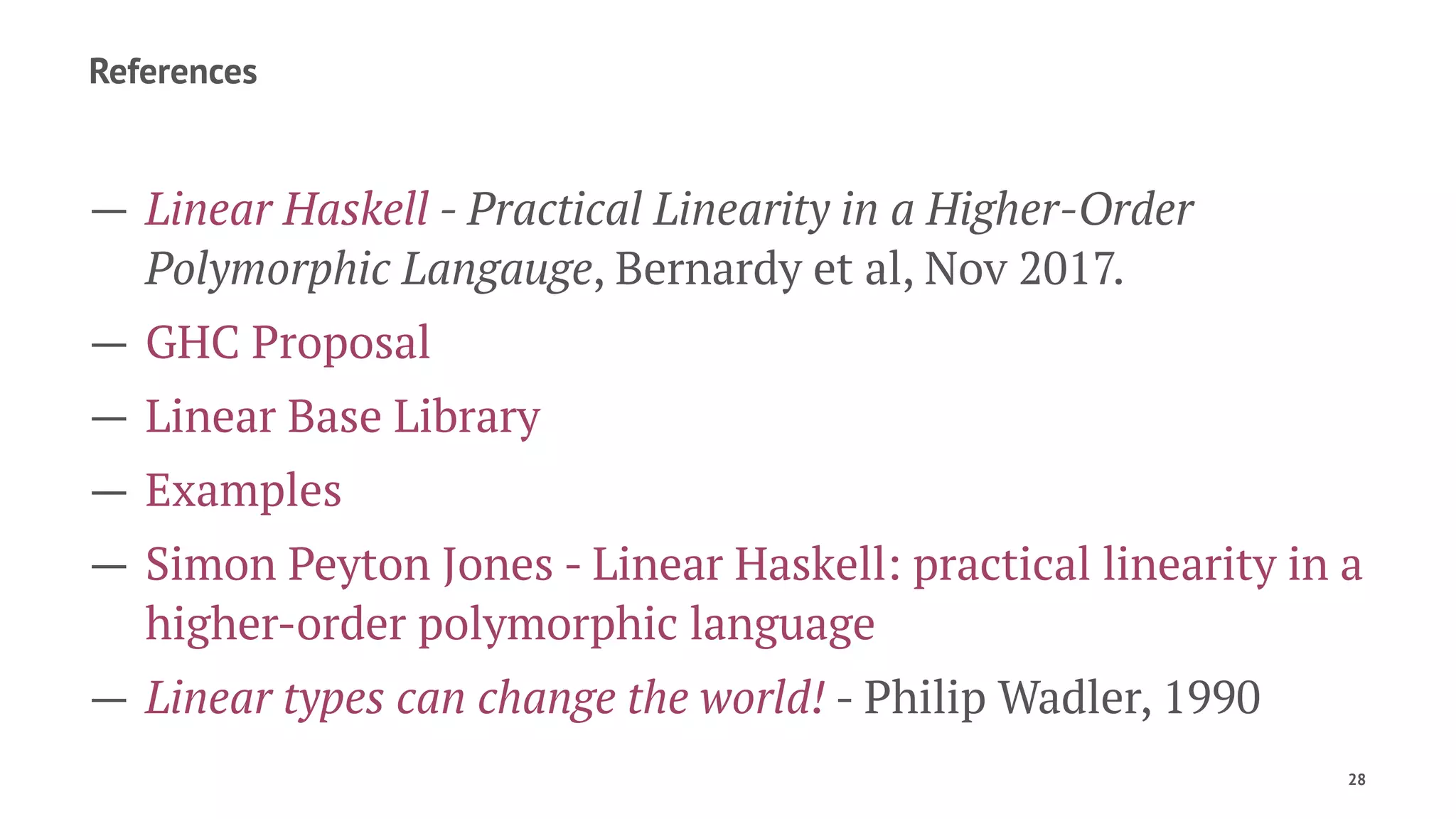Linear types can make resource usage in Haskell safer by ensuring resources like memory and file handles are used exactly once. The proposed GHC extension adds linear types via the #-> arrow and a linear base library provides linear versions of Prelude functions and arrays. Examples show how linear types ensure file handles are closed exactly once and mutable arrays are destructively updated safely. Related work includes linear logic, uniqueness types in Clean and Mercury, and Rust's ownership and borrowing model.
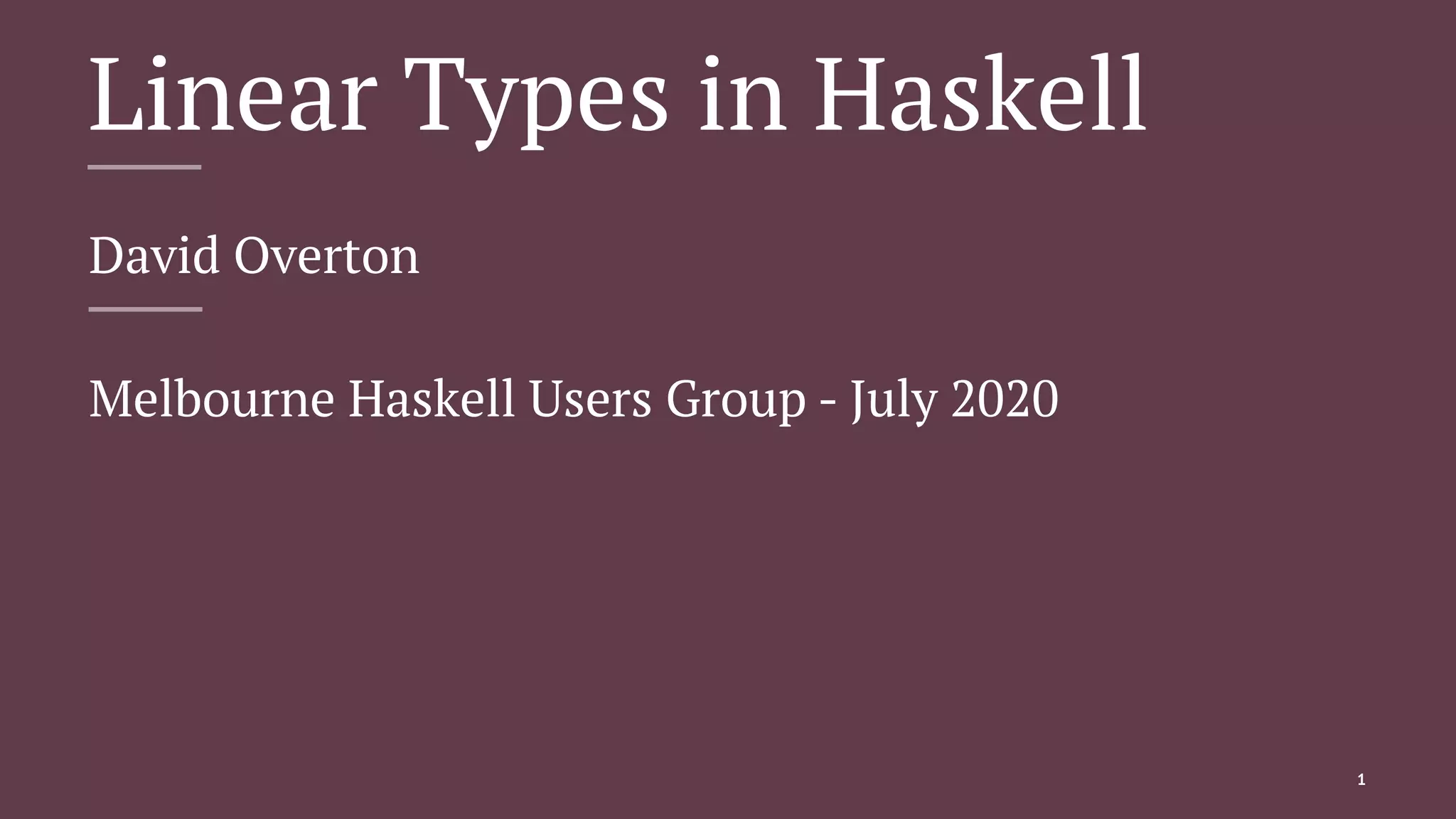
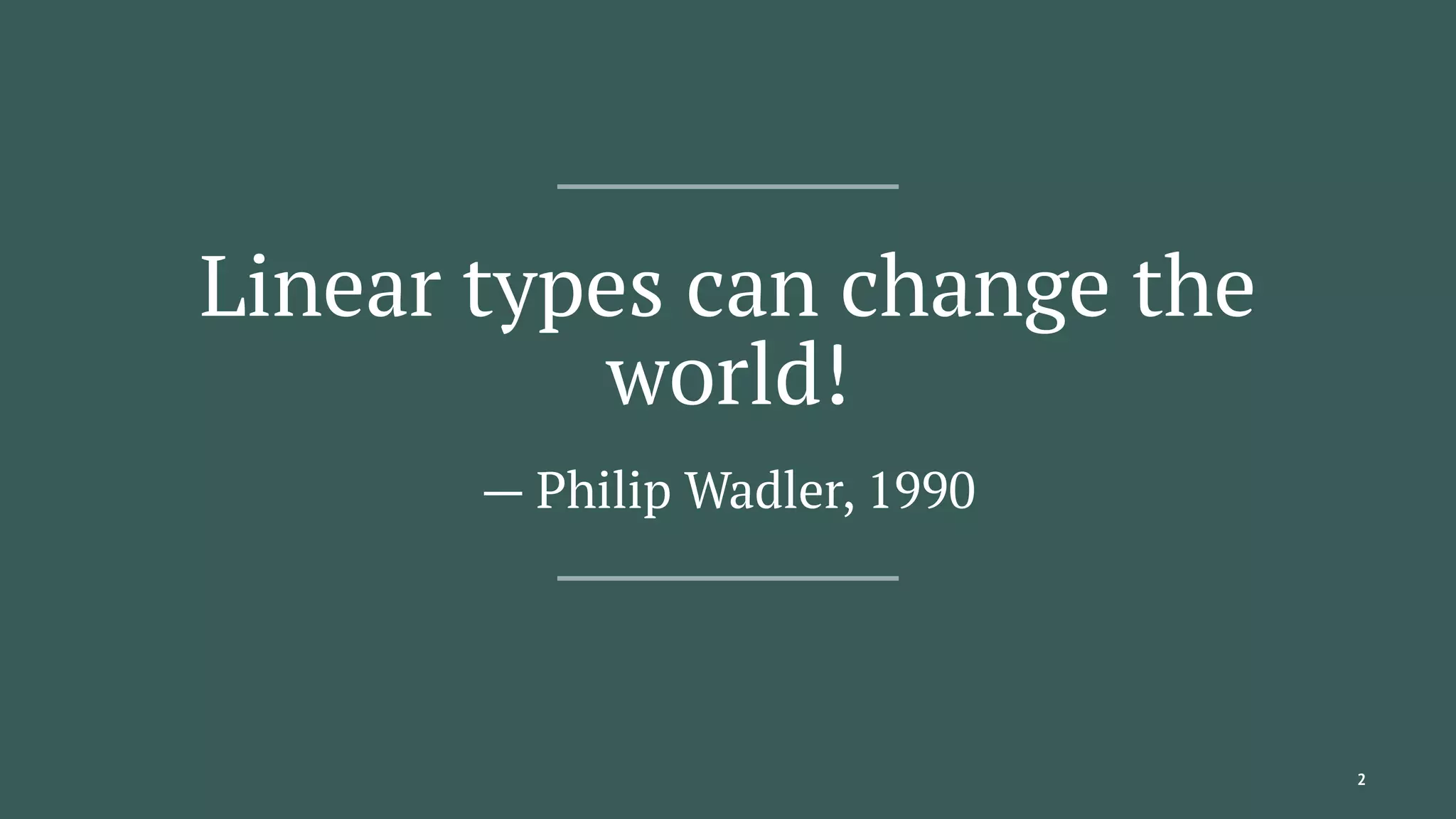
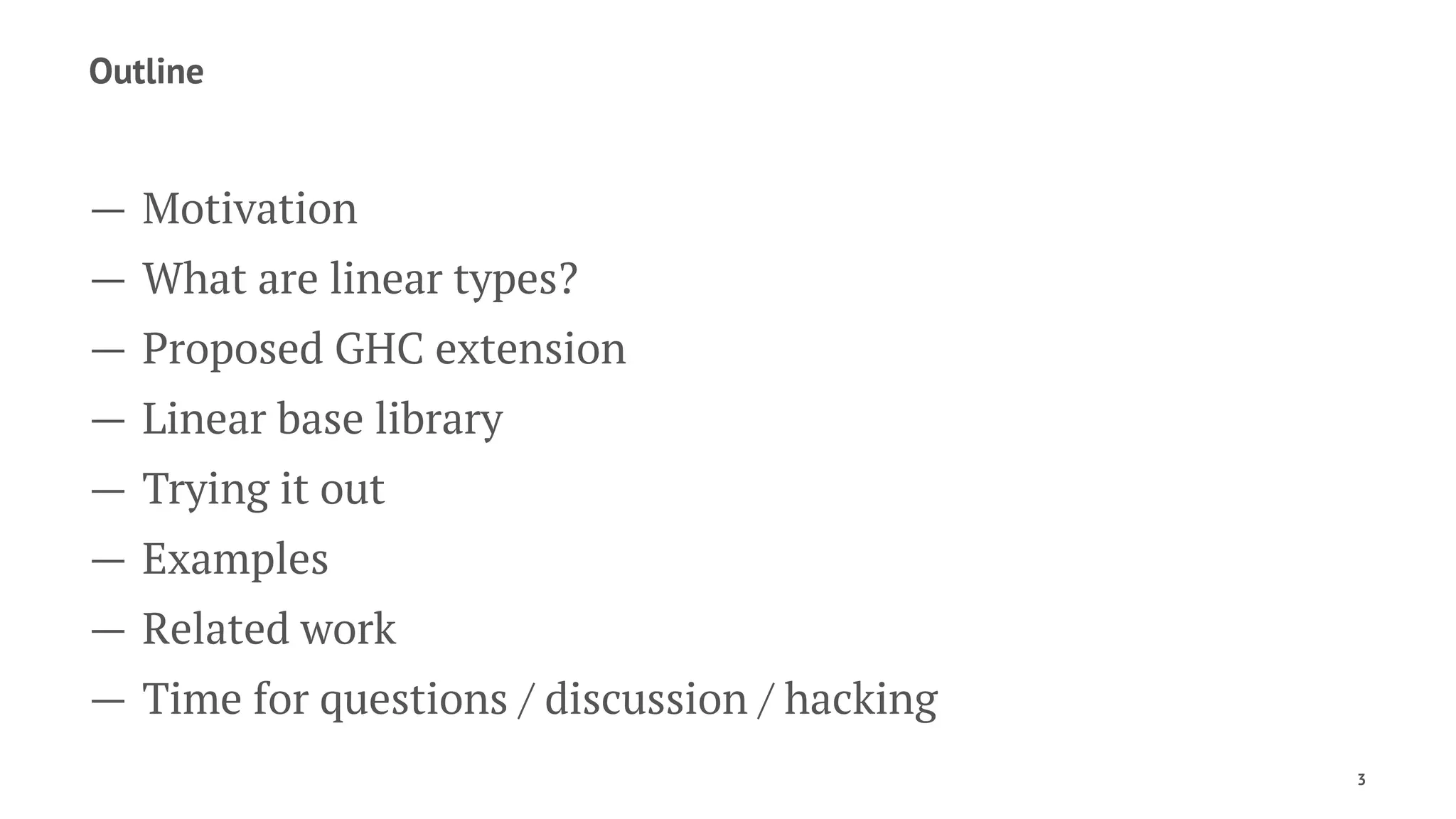
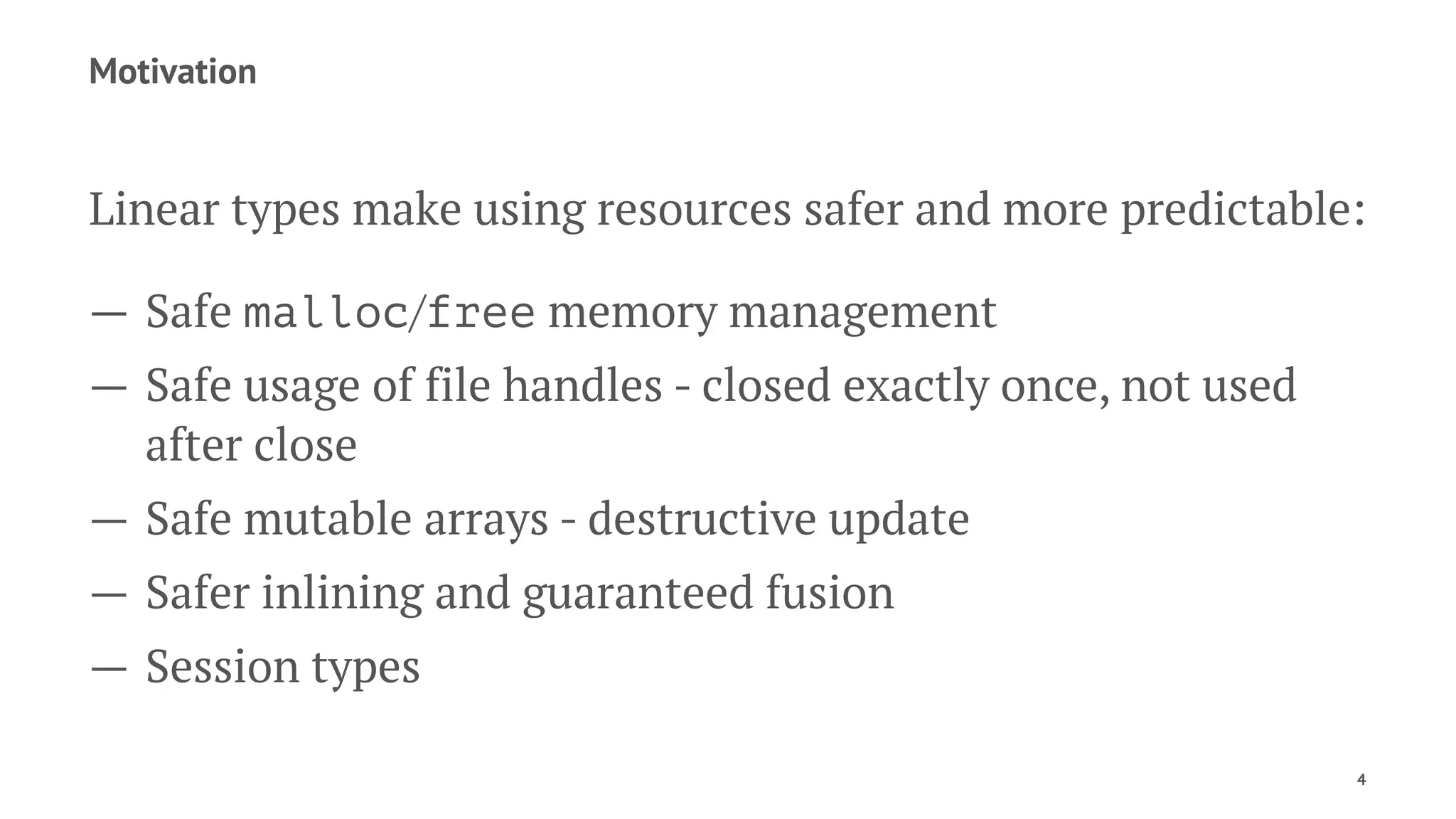
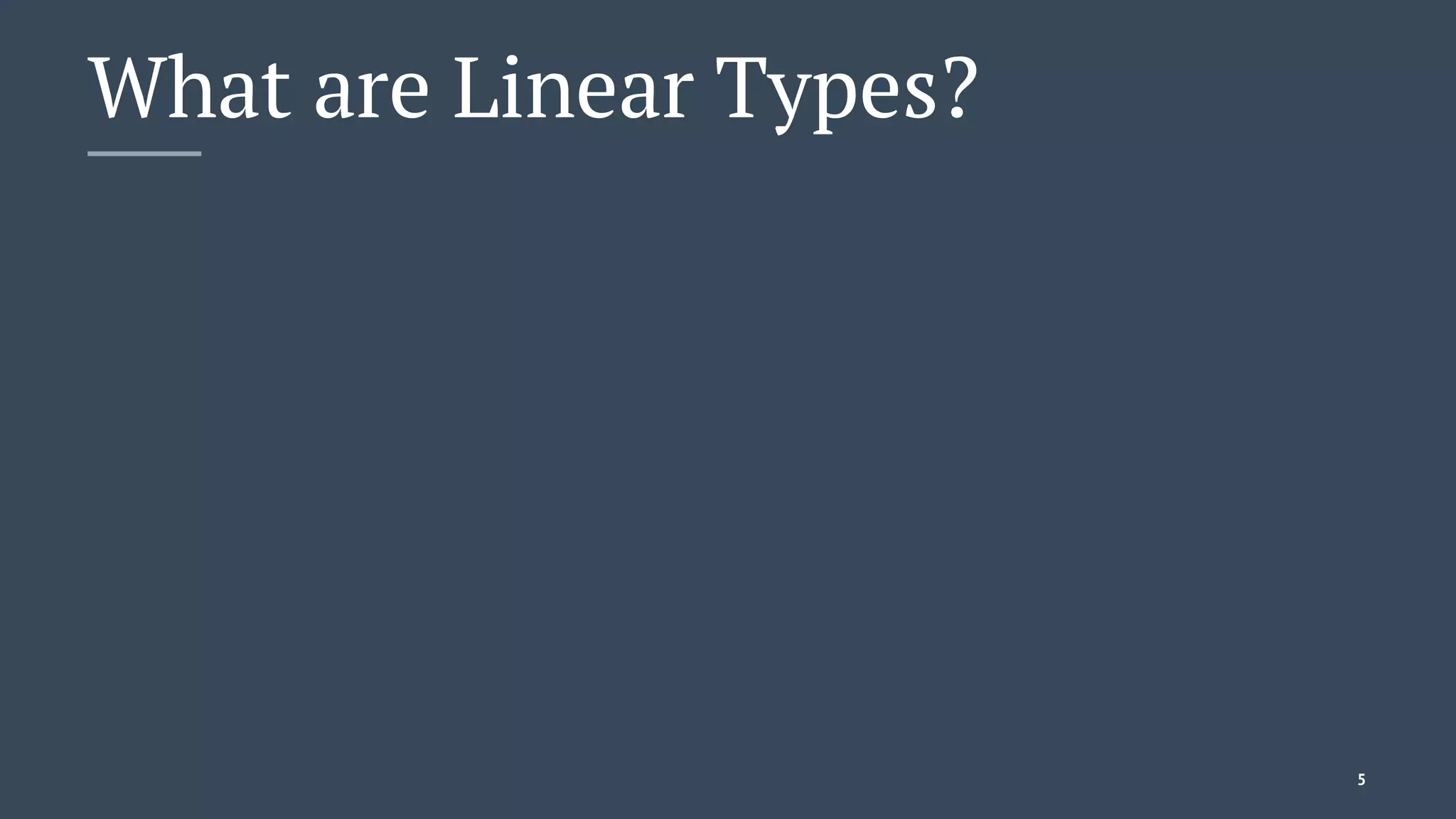
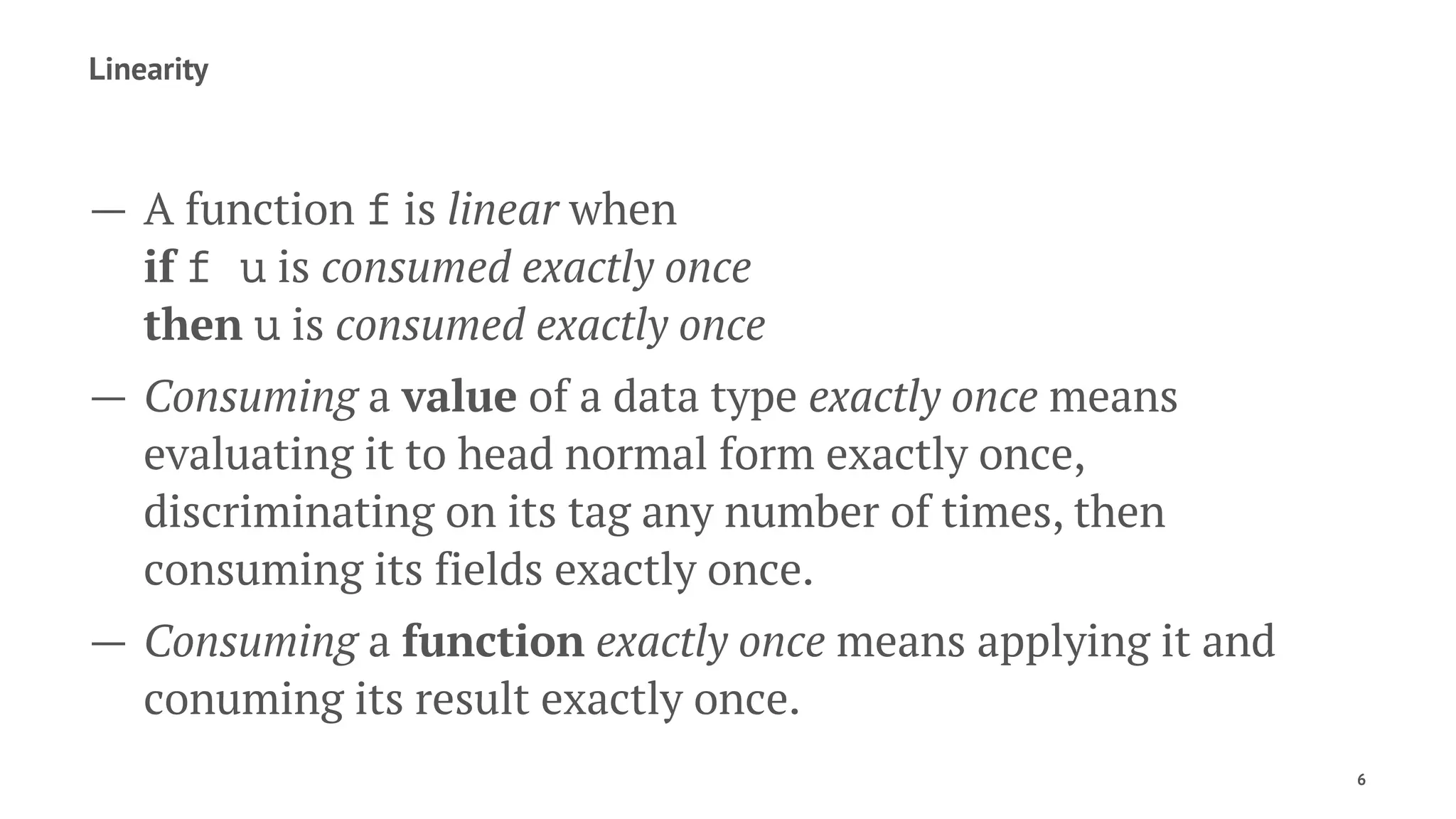

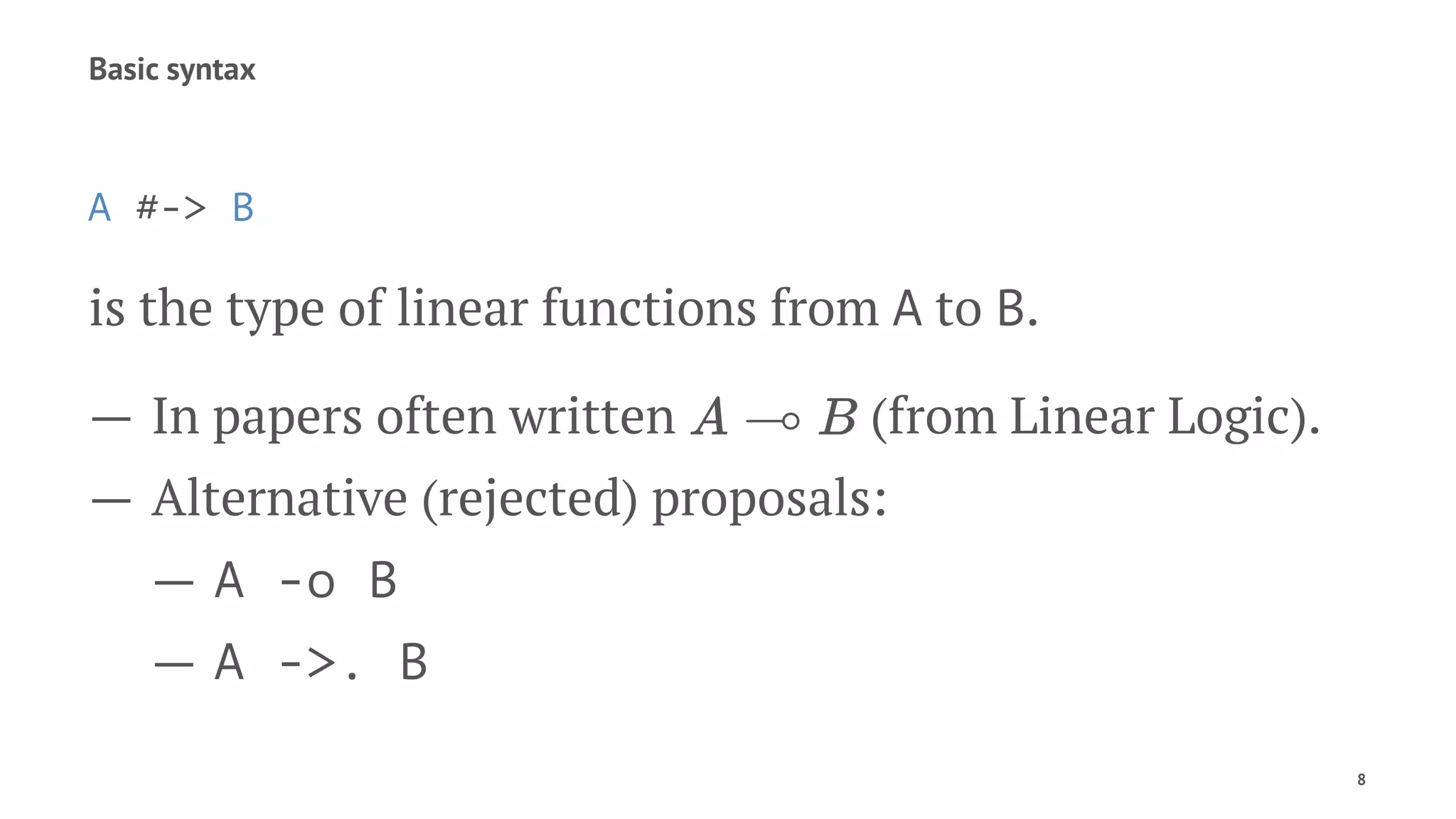
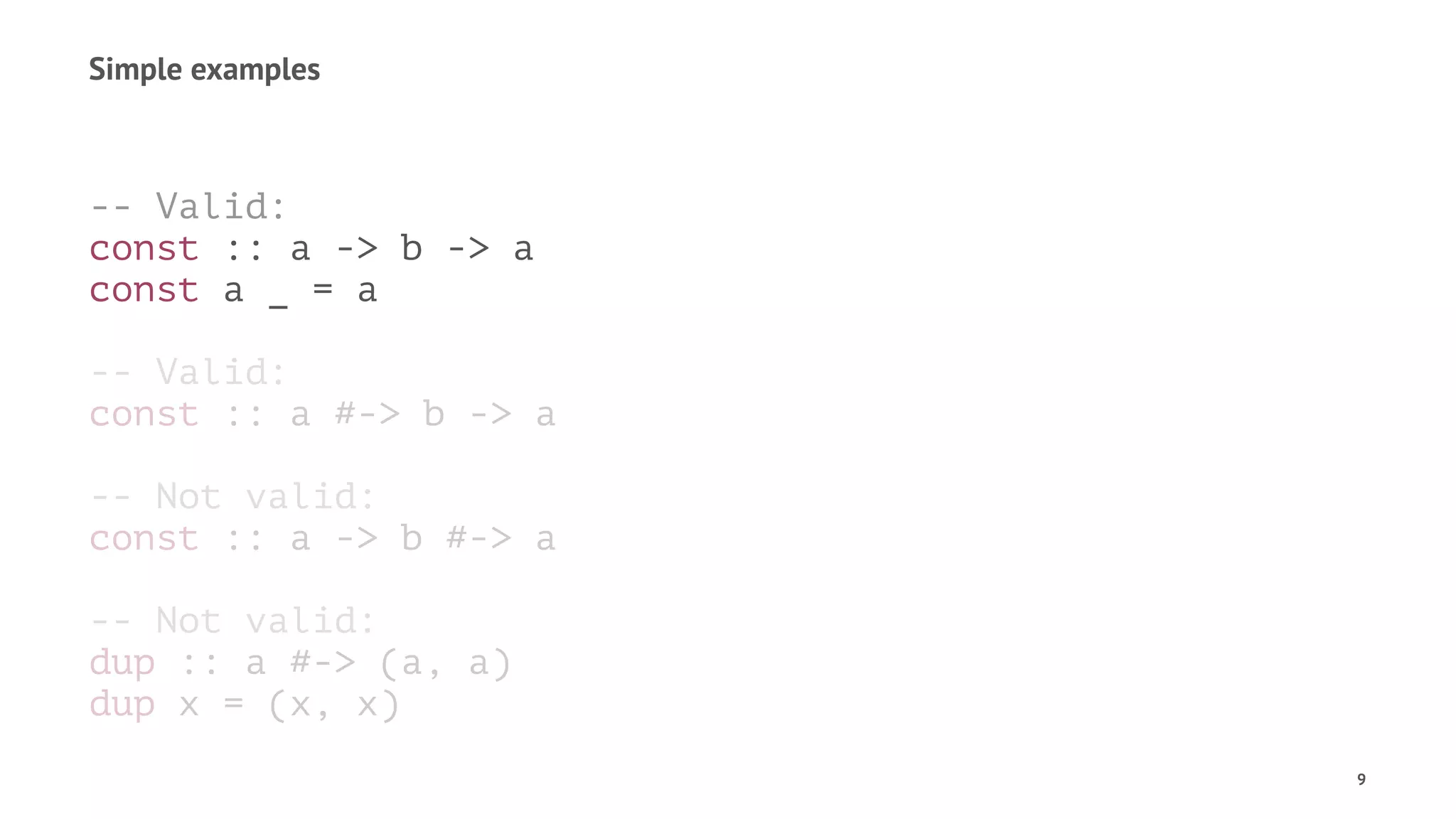
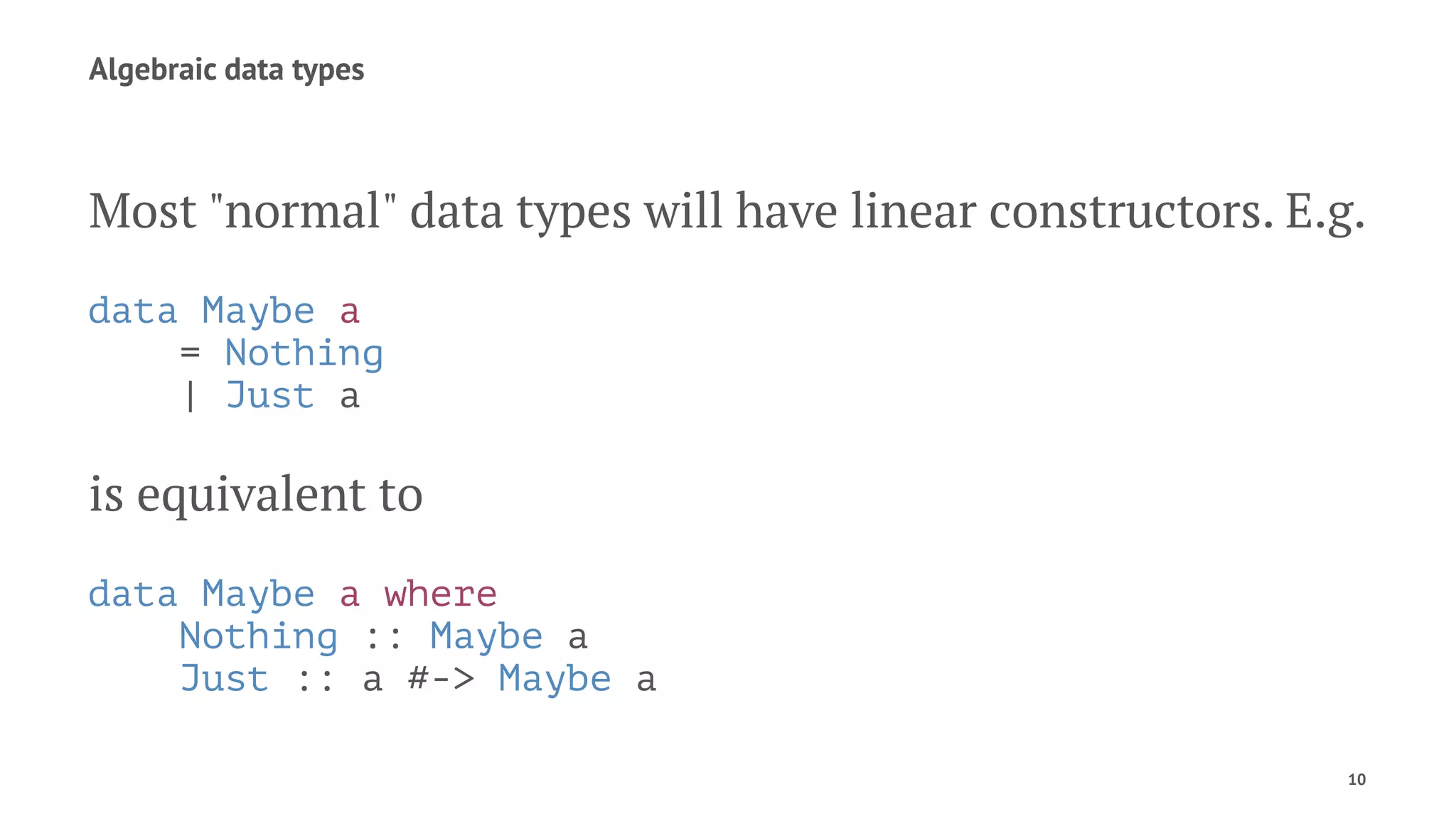
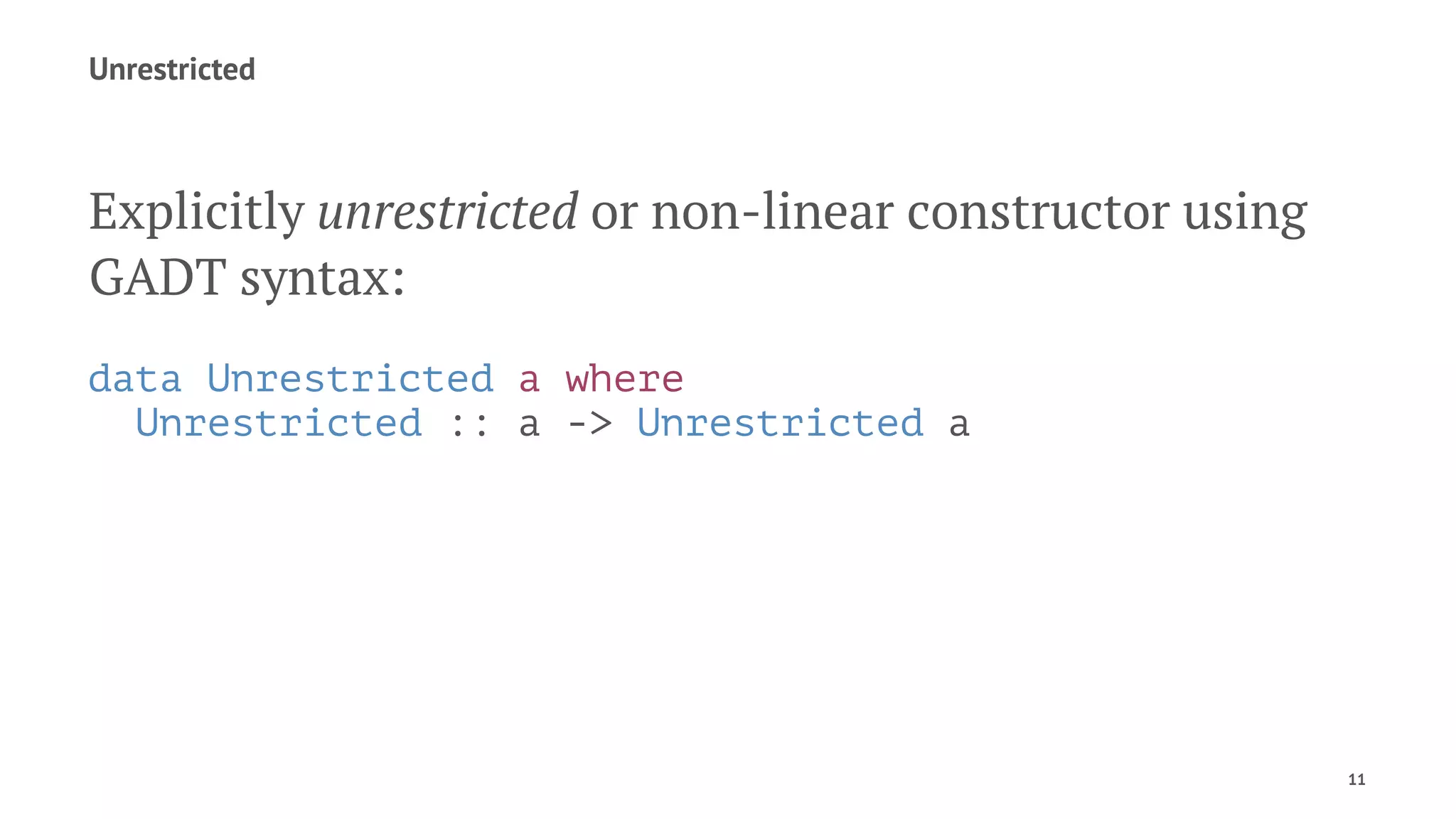
![Polymorphism
Two possible types of map:
map :: (a -> b) -> [a] -> [b]
map :: (a #-> b) -> [a] #-> [b]
— The map function preserves the multiplicity of its
function argument
— But we don't want to have to define it twice
12](https://image.slidesharecdn.com/linear-200731013821/75/Linear-Types-in-Haskell-12-2048.jpg)
![Polymorphism
To avoid code duplication, functions can have
multipicity polymorphism.
map :: (a #p-> b) -> [a] #p-> [b]
where p is a multiplicity parameter.
— Linear functions have multiplicity or One
— Unrestricted functions have multiplicity or Many
13](https://image.slidesharecdn.com/linear-200731013821/75/Linear-Types-in-Haskell-13-2048.jpg)
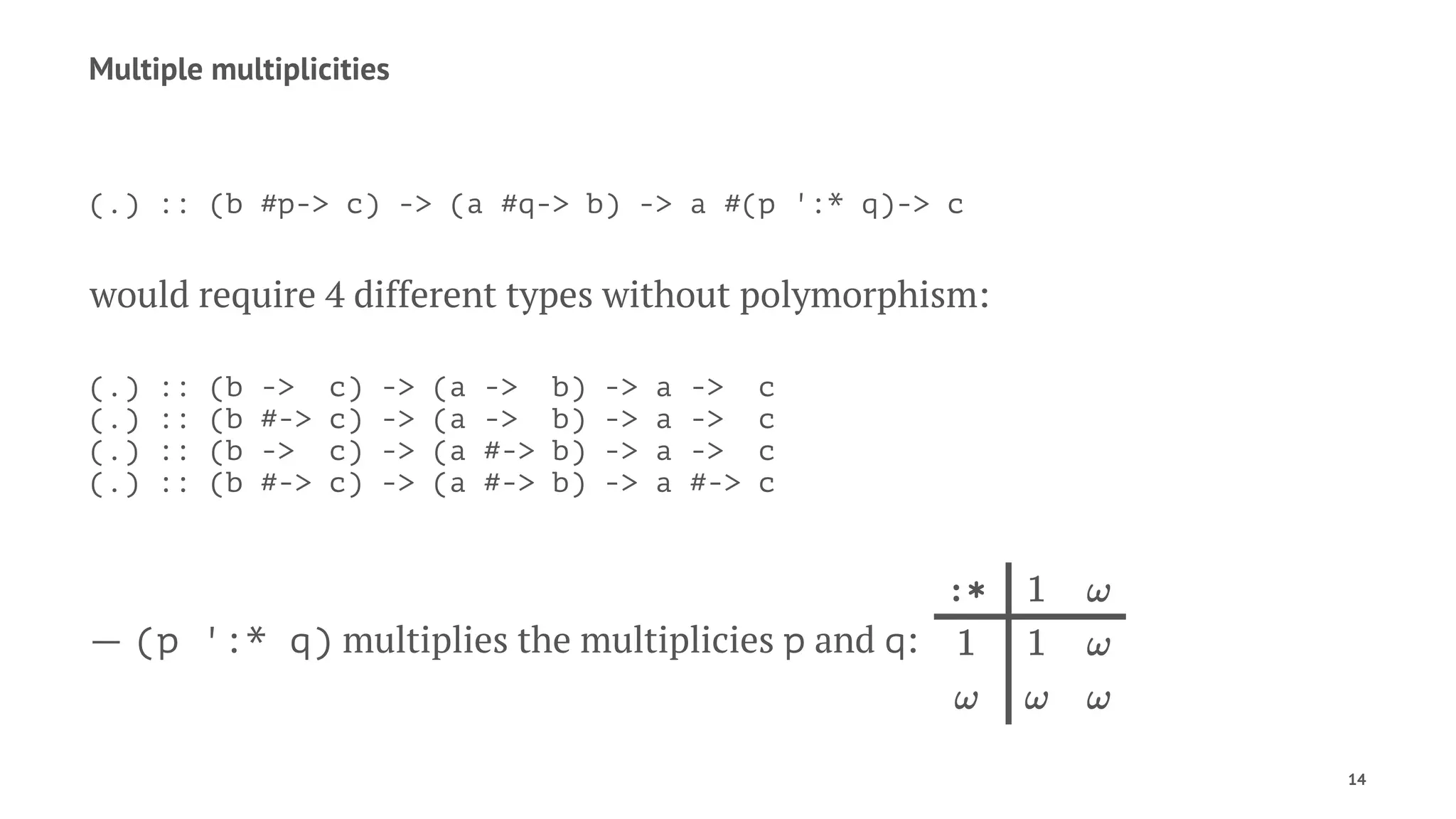
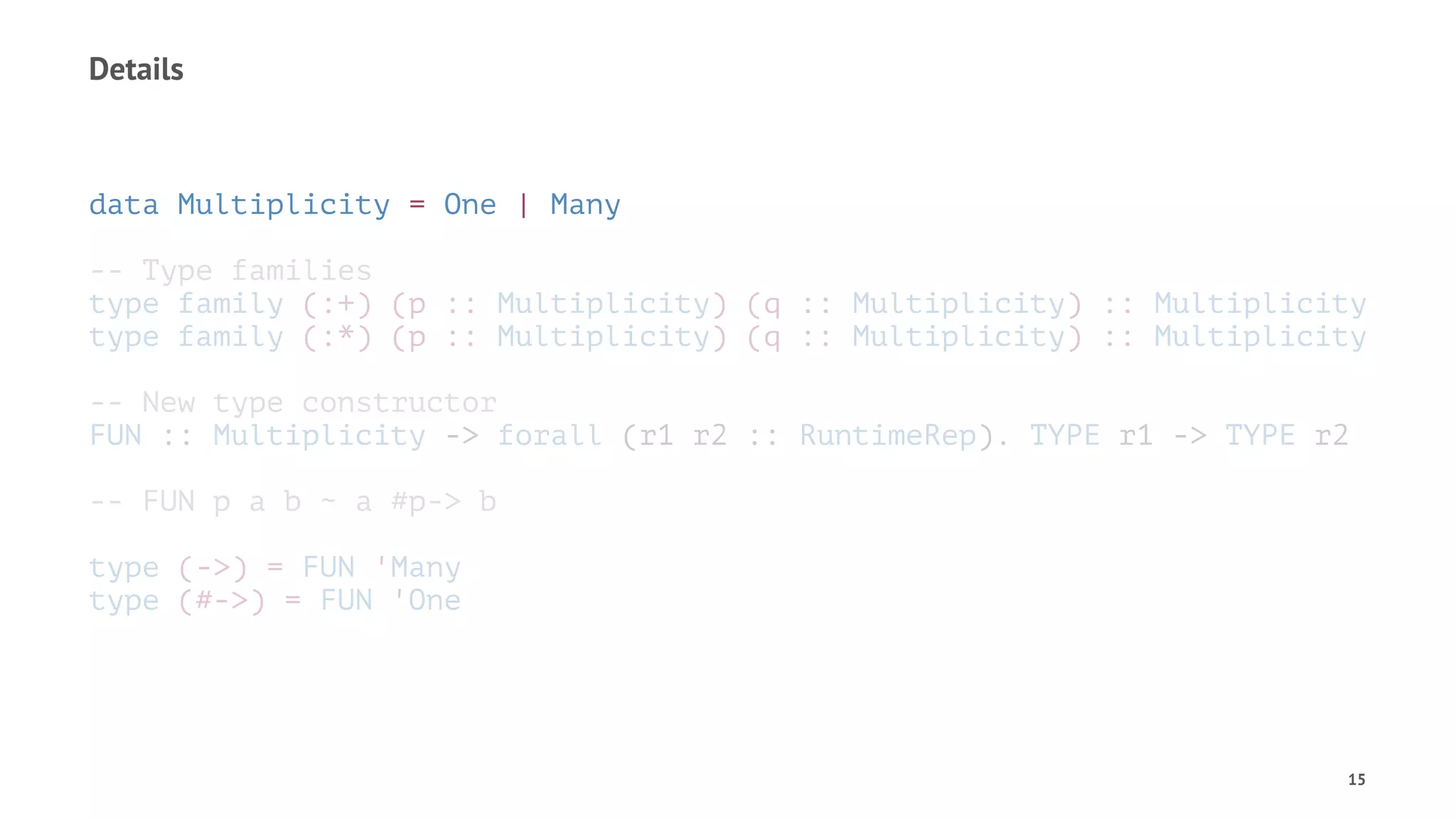
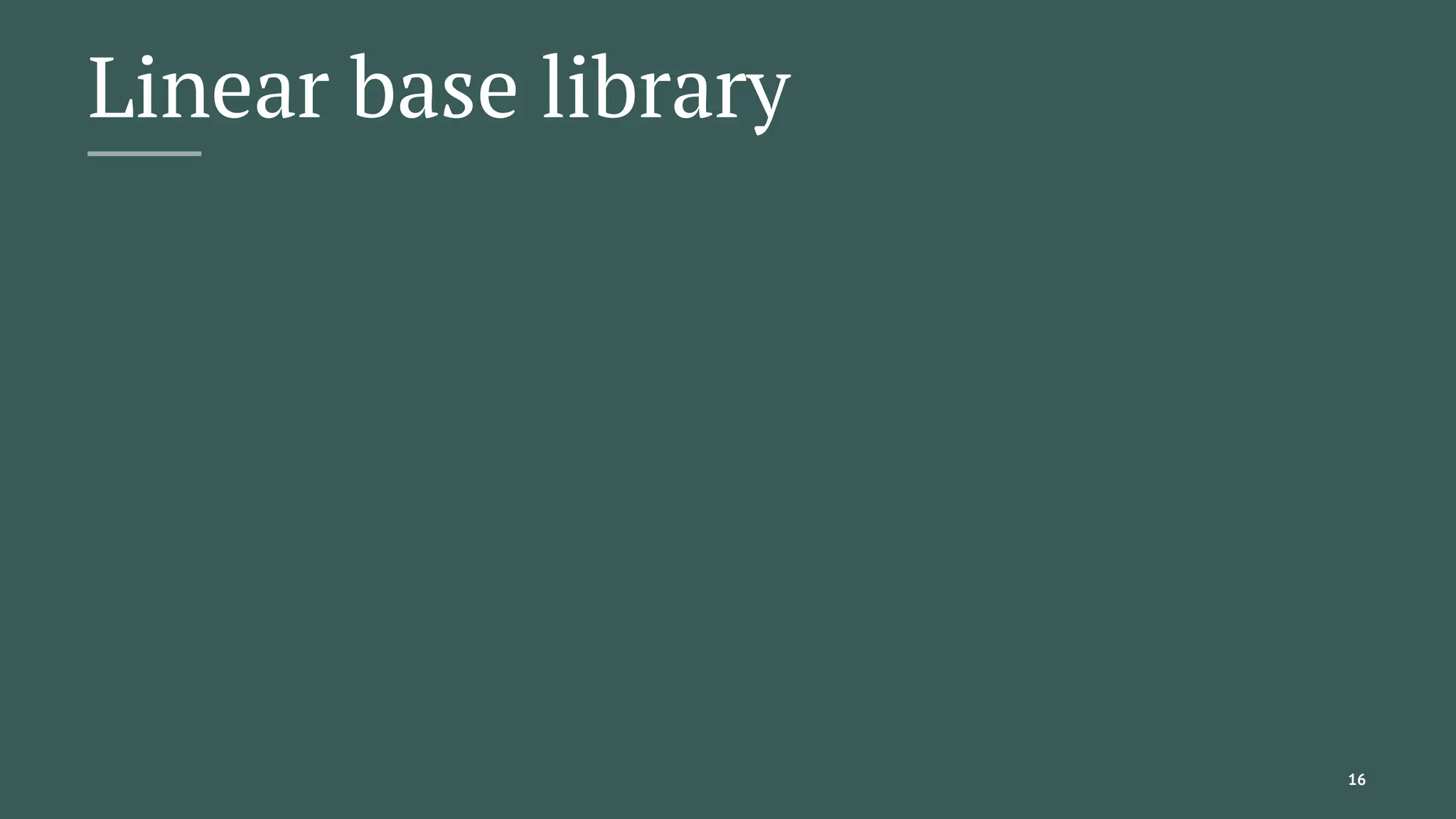


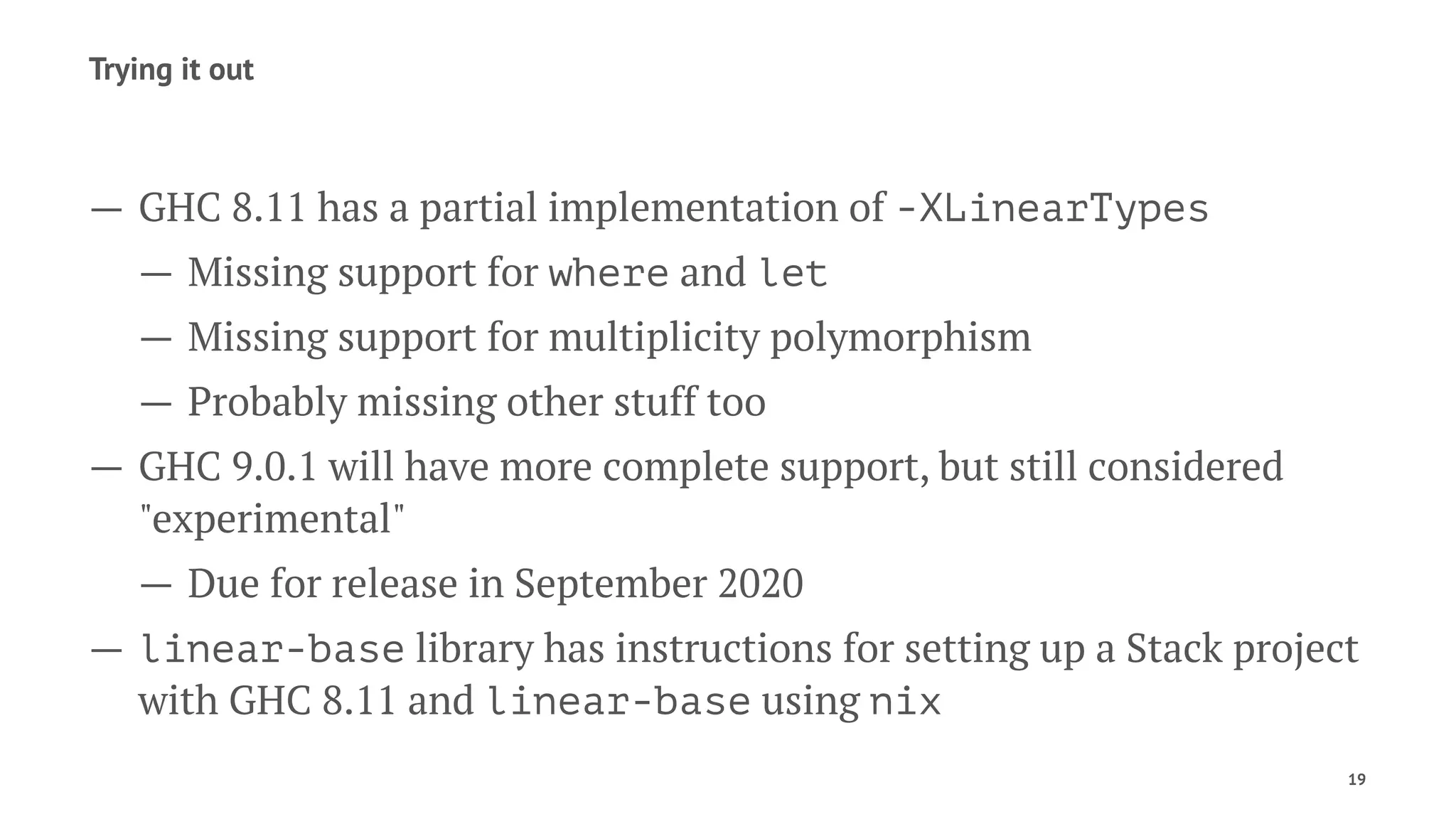

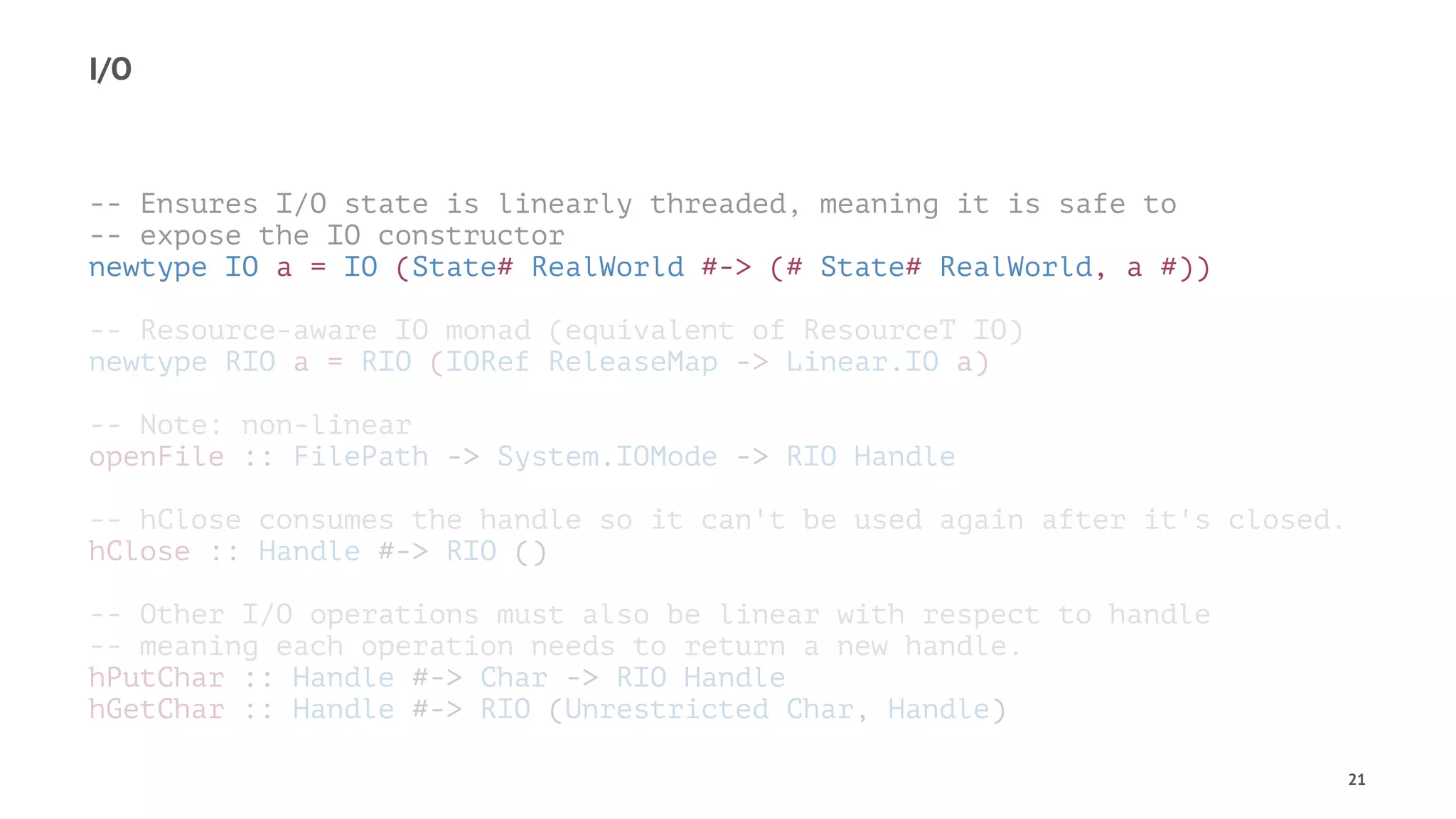
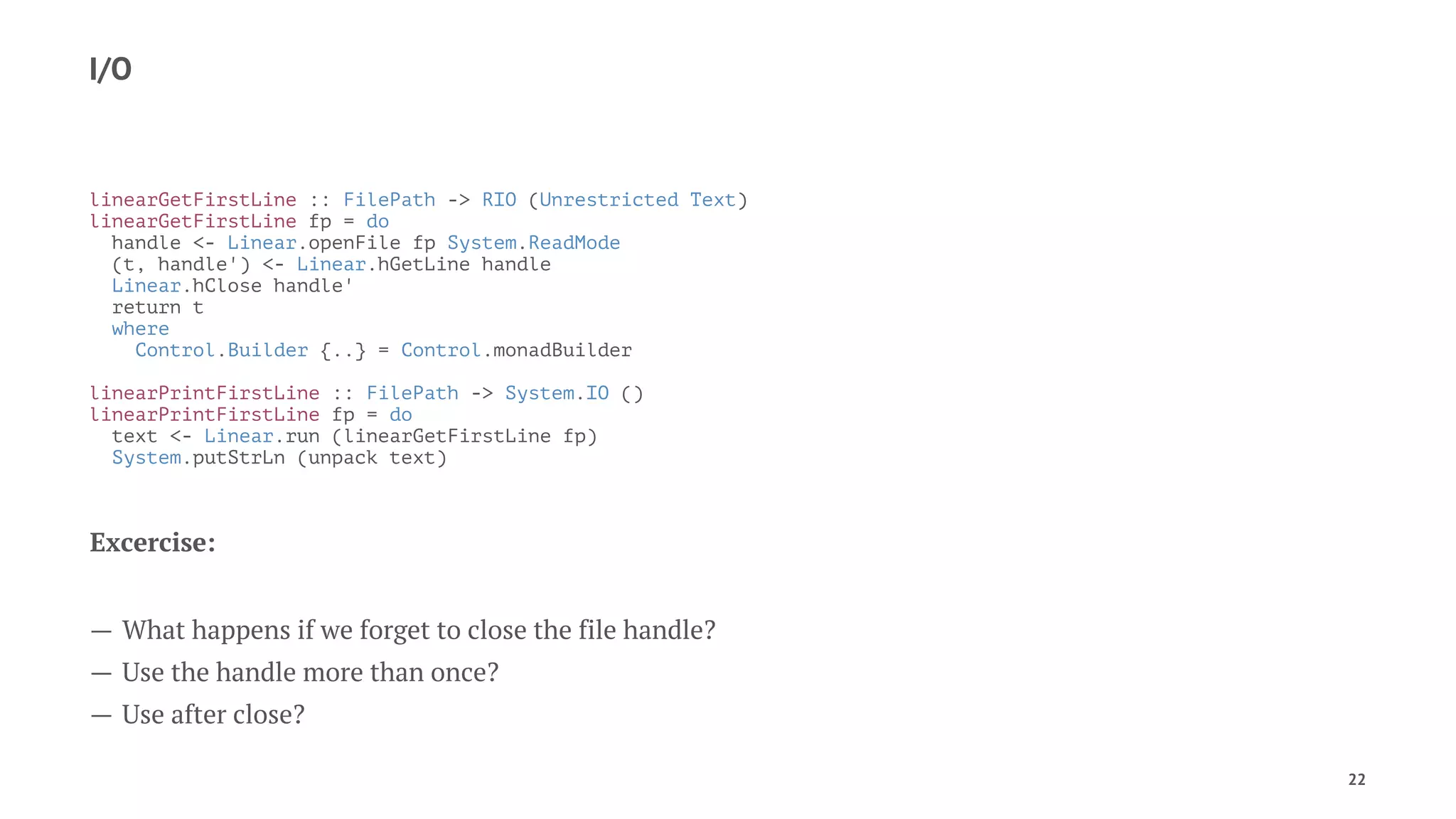
![Mutable arrays
fromList :: [a] -> (Array a #-> Unrestricted b) -> Unrestricted b
toList :: Array a #-> (Array a, [a])
length :: Array a #-> (Array a, Int)
write :: Array a #-> Int -> a -> Array a
read :: Array a #-> Int -> (Array a, Unrestricted a)
— Note use of continuation passing style for fromList
— Required to ensure that the array is always used linearly
— Operations return a "new" array
Excercise:
— Write a function to swap two elements in an array.
23](https://image.slidesharecdn.com/linear-200731013821/75/Linear-Types-in-Haskell-23-2048.jpg)
![void swap(int a[], int i, int j) {
int t = a[i];
int u = a[j]
a[i] = u;
a[j] = t;
}
swap :: Array a #-> Int -> Int -> Array a
swap a i j =
Array.read a i & case
(a', Unrestricted t) -> Array.read a' j & case
(a'', Unrestricted u) -> Array.write a'' i u &
a''' -> Array.write a''' j t
24](https://image.slidesharecdn.com/linear-200731013821/75/Linear-Types-in-Haskell-24-2048.jpg)

